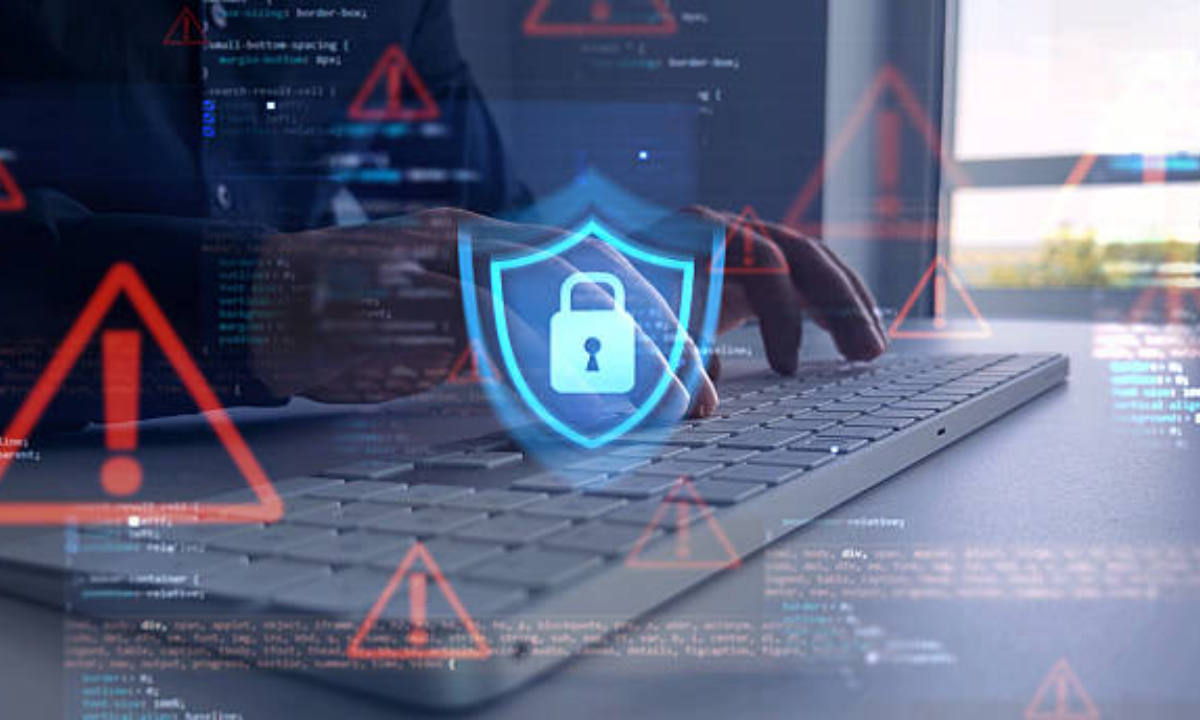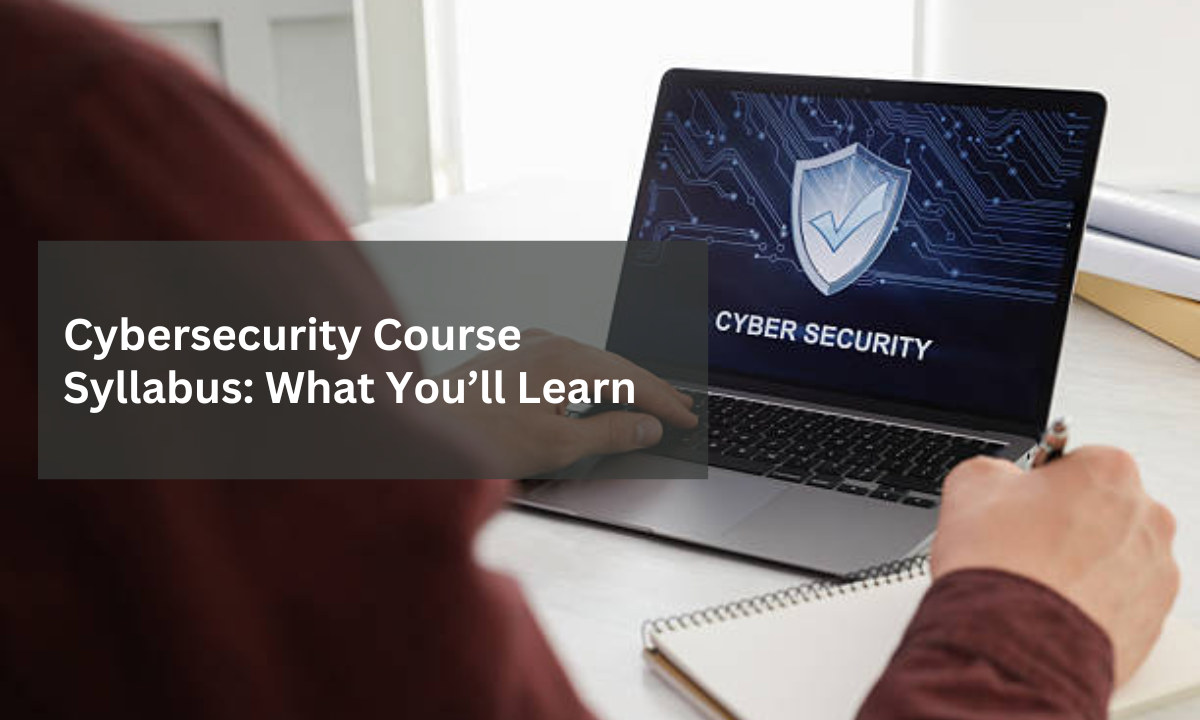Table of contents:
|
1. Setting the Foundations: Introduction to Cybersecurity |
|
2. Core Infrastructure Protection: Network Security |
|
3. Protecting the Software Layer: Application Security |
|
4. Offensive Thinking: Ethical Hacking |
|
5. Securing Secrets: Cryptography & Encryption |
|
6. Safeguarding Data: Information Security |
|
7. Strategic Guarding: Risk Management |
|
8. Why the Entire Syllabus Works Together |
|
9. What You Should Expect from a Training Institute |
|
10. Wrapping Up |
|
11. FAQs |
At Apponix, when we speak with prospective students about our cybersecurity course in Bangalore, the conversation always begins with one critical component: the cybersecurity course syllabus.
That syllabus is more than a list of modules; it's your roadmap through topics like introduction to cybersecurity, network security, application security, ethical hacking, cryptography, encryption, information security, and risk management.
In this blog, I’ll walk you through what you should expect in a well-designed syllabus, why each section matters, and how the training from a top-class training institute in Bangalore, like ours, will prepare you for real-world challenges.
Setting the Foundations: Introduction to Cybersecurity

In the opening phase of the syllabus, you’ll encounter an overview of cybersecurity: what it is, why it matters in today’s digital economy, and the range of threats (ransomware, data breaches, phishing) that organisations face. We emphasise that this is not just “IT work”, it's about protecting information, systems, and users.
Students will also be introduced to key concepts like the CIA triad (Confidentiality, Integrity, Availability), basic security frameworks, regulatory environments, and employment pathways. A strong foundation here ensures you’re ready for deeper topics.
Core Infrastructure Protection: Network Security
Moving on, the syllabus dives into network security. You’ll learn how networks are structured LANs, WANs, the OSI model, what makes them vulnerable (open ports, mis-configured routers, unsecured wireless access), and how to defend them. Modules covering firewalls, IDS/IPS systems, VPNs, segmentation, and zero-trust concepts are typical.
At Apponix, we accompany theory with hands-on labs: configuring a firewall, implementing secure network topologies, performing subnet analysis, and defending against network-based attacks. This element is crucial because any serious cybersecurity professional must understand how data moves and where it can be intercepted or manipulated.
Protecting the Software Layer: Application Security
Once you understand networks, good syllabi move you into application security. This involves securing web applications, mobile apps, APIs, and backend services against common vulnerabilities: SQL injection, cross-site scripting (XSS), broken authentication, insecure deserialization, etc.
At our institute, we teach you how to review code (or pseudo-code), watch for insecure design patterns, use penetration testing tools, and apply secure development lifecycle practices. Application security closes the gap between system architecture and business logic—without it, network-only defence is insufficient.
Offensive Thinking: Ethical Hacking
Next comes ethical hacking, where you flip the mindset and think like an attacker. The syllabus typically includes footprinting, reconnaissance, scanning, exploitation, post-exploitation, and reporting. You learn tools such as Nmap, Metasploit, Burp Suite, and techniques for social engineering, client-side attacks, and hardened system bypassing.
At Apponix, ethical hacking is not about “breaking stuff” for fun; it's controlled, legal, responsible, and tied to risk-management concepts. You learn the full life-cycle of penetration testing, the reporting standard, and how to recommend remediation. This makes you valuable to employers who want proactive defence, not just reactive.
Securing Secrets: Cryptography & Encryption
No solid cybersecurity course syllabus is complete without cryptography and encryption modules. Here you’ll explore symmetric vs asymmetric encryption, key management, digital signatures, certificate authorities (CAs), hashing, salting, and use-cases (secure email, VPNs, blockchain basics).
At Apponix, we emphasise practical application: you’ll encrypt/decrypt data, set up TLS connections, examine how compromised certificates lead to breaches, and understand how cryptography underpins everything from secure browsing to cloud security. Understanding encryption is essential for both technical implementation and strategic governance of security systems.
Safeguarding Data: Information Security
In this module, students learn information security as a discipline: data classification, policies, compliance (GDPR, Indian IT Act, etc.), incident response, business continuity, and disaster recovery planning. The syllabus connects the technical layers (networks, applications, devices) with organisational controls: identity & access management, audit trails, logs, and SIEM systems.
At Apponix, our syllabus ensures you emerge with awareness of how security decisions at the boardroom level cascade into technical controls and vice versa. You become equipped to speak both technical and business language.
Strategic Guarding: Risk Management
Finally, but by no means, the syllabus covers risk management. This includes identifying assets, threats, vulnerabilities, calculating risk (likelihood × impact), choosing mitigation strategies, monitoring controls, and reviewing outcomes. You’ll also learn how to align security strategy with business goals, budget appropriately, report to stakeholders, and stay ahead of evolving threats.
In our training institute in Bangalore, we partner this module with case studies of actual breaches, how risk decisions failed or succeeded, and how timely controls saved organisations millions. After all, technology is only as effective as the risk decisions behind it.
Why the Entire Syllabus Works Together
The modules described above are not isolated; they form a coherent curriculum. At Apponix, we structure the cybersecurity course syllabus so that each section builds on the previous, with labs, simulations, case studies, group projects, and assessments integrated across modules. By the time you finish, you will have moved from understanding what cybersecurity is, to defending networks and applications, to proactively simulating attacks and managing organisational risk.
That progression helps our graduates succeed in roles such as security analyst, ethical hacker, compliance specialist, or network security engineer.
What You Should Expect from a Training Institute
When you enrol in a cybersecurity certification course in Bangalore with Apponix, here’s what you should expect:
-
A detailed syllabus aligned with industry certifications (CEH, CISSP, CompTIA Security+, etc.).
-
Expert instructors with hands-on experience in security operations and threat hunting.
-
Lab infrastructure where you practice network attacks, application penetration testing, cryptographic challenges, and incident response exercises.
-
Real-world projects that help you apply theory to business scenarios.
-
Placement support and career guidance targeting roles across sectors.
-
Up-to-date curriculum reflecting emerging trends: cloud security, IoT security, AI in cybersecurity, etc.
Wrapping Up
In my journey at Apponix Training Institute in Bangalore, I have witnessed countless students come in uncertain, eager, and curious, and leave transformed, confident in the capabilities they didn’t have before. A well-crafted cybersecurity course syllabus is the foundation of that transformation. When it covers everything from network security and application security to ethical hacking, cryptography, encryption, information security, and risk management, it gives you the full spectrum of knowledge, the hands-on practice you need, and the strategic understanding that organisations demand.
Choosing the right cybersecurity certification course in Bangalore matters because you don’t just learn theory; you become job-ready. With the threat landscape evolving rapidly, the right syllabus positions you ahead, equips you for certification, and opens doors into a field with increasing demand and high rewards. At Apponix, we stand by our comprehensive course, our mentors, and our commitment to your career.
If you’re ready to unlock a future where you’re not just protecting systems but shaping security strategy, then this is your moment. Embrace the syllabus, dive into every module, ask questions, get lab time, apply your learning, and watch how doors open. Because in cybersecurity, knowledge is power, and mastery is your career.
FAQs
Q: Do I need prior experience to enrol in a cybersecurity course syllabus?
No, while a basic understanding of IT, operating systems, and networks will help, many programmes are structured for beginners. They will bring you up to speed on foundational concepts before moving into advanced topics.
Q: How long does a cybersecurity certification course in Bangalore typically take?
It depends on format; full-time bootcamps may last a few weeks to a few months, whereas more comprehensive programmes (with deeper modules, labs, and projects) may run six months or more. At Apponix, we offer flexible durations depending on your pace and prior experience.
Q: Will the syllabus prepare me for job roles like an ethical hacker or security analyst?
Yes, the syllabus we cover at Apponix is specifically designed to align with job-ready skills: network defence, application security, penetration testing, cryptography, incident response, and risk management. These are the skills employers ask for in security analysts, penetration testers, and similar roles.
Q: What kind of certification will I get upon completing the course?
Upon completing our training, you receive a completion certificate from Apponix, and we prepare you for industry certifications such as CEH, Security+, CISSP, or others, depending on your level. Having a strong syllabus and lab component improves your chances of passing these as well.
Q: Does the training institute in Bangalore provide practical projects and labs?
Absolutely, hands-on practice is essential. At Apponix, our syllabus includes simulations, real-world attack/defend labs, penetration testing assignments, cryptography exercises, and risk-assessment case-studies so you leave with not just knowledge, but applied experience.




